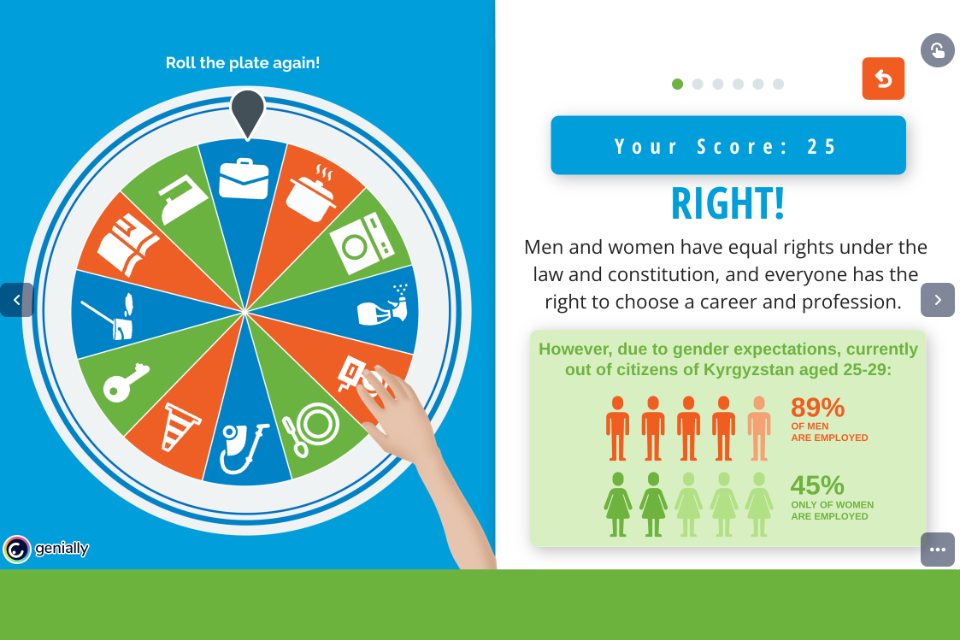In Kyrgyzstan, a new a game on household chores encourages players to reflect
Date:

A groom asked a father for his daughter’s hand in marriage, to which her father replied: "Who will clean the house when you get married?" What answer would satisfy him?
Questions like these are among those found in the innovate new online game “Who should be responsible for household chores?” which was created by the UN Women Country Office in Kyrgyzstan to address the inequality of unpaid care and domestic work. According to the latest data (Assessing the lights and shadows of COVID-19: A gender analysis of pandemic-related impacts on women and girls in Europe and Central Asia), women in Central Asia spent 2.5 times more time on unpaid care work than men.
The interactive game explains the need for a more equitable division of household chores between men and women, emphasizing women’s leadership, raising awareness about the importance of an equal division of household chores between men and women.
Available in Kyrgyz, Russian and English languages, the interactive game features six questions/scenarios for users to answer. The game not only includes real-world questions and scenarios, but presents the reality of current chore distribution in Kyrgyzstan with data and facts to support and inspire users to share household chores more equitably.
“The game was created in the hopes that, after playing it in an interactive manner, people will understand that the fair sharing of household chores is the basis of family happiness,” explains Project Manager Gulzhan Niiazalieva. “One’s health, mood, and the success of the family depend on the division of household chores. This is an indicator of how much family members care for each other.”
The game was tested in a third-year classroom of male and female students at Batken State University who were then encouraged to discuss and reflect on each question and answer. Thanks to the game, the female students were able to explain to the male students why they would like help with housework.
“My dad always says that girls should be good housewives, but everyone should be able to do housework,” said one of the female students. “I would like my husband to support me in everything, not just mentally, but also by physically helping with work around the house.”
The game was created under the project “Responding to the urgent needs of women and girls in a vulnerable situation aggravated by COVID-19 in Kyrgyzstan”, which is financially supported by the Government of Japan.
The project applied innovative approaches to address gender inequalities, such as the burden of unpaid and invisible women’s work. Advocacy aimed at changing norms and behaviours was also undertaken, promoting equality, mutual respect, and consent in defining roles and responsibilities within households.